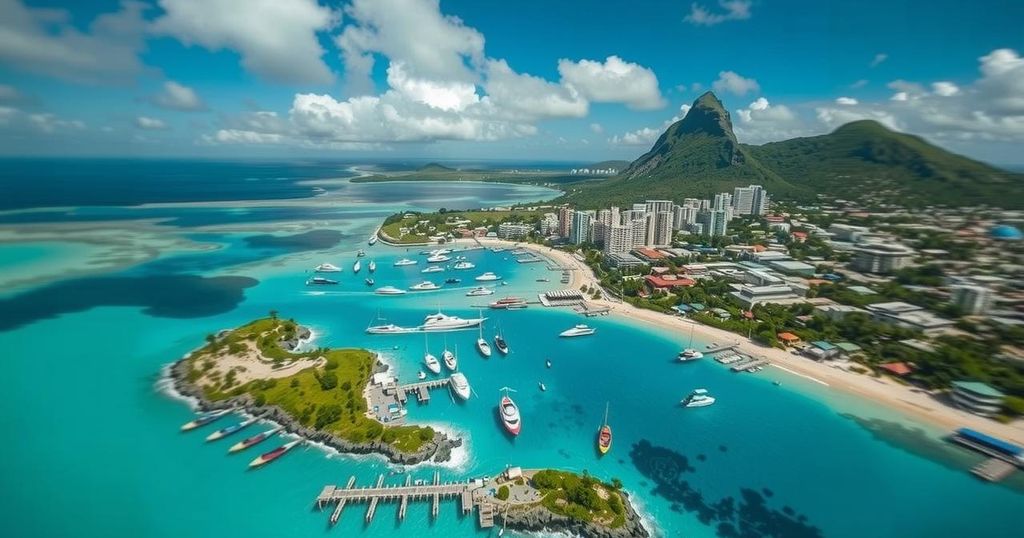Politics
AFRICA, AFRICAN UNION, ALLIANCE OF CHANGE, BRITAIN, CHAGOS ISLANDS, DEMOCRACY, DEMONSTRATIONS, GOVERNMENT, INDIAN OCEAN, MAURITIUS, MILITANT SOCIALIST MOVEMENT, NATIONAL ASSEMBLY, NAVIN RAMGOOLAM, OPPOSITION, POLITICS, POPULISM, PR, PRAVIND JUGNAUTH, RAMGOOLAM, SHEILA
Isaac Bennett
0 Comments
Mauritius Votes Amidst Phone-Tapping Scandal and Economic Concerns
Mauritius held parliamentary elections that have been overshadowed by a phone-tapping scandal and unrest regarding civil liberties. The election follows a significant agreement granting sovereignty over the Chagos Islands to Mauritius. Prime Minister Pravind Jugnauth’s party faces opposition from former Prime Minister Navin Ramgoolam’s alliance as voter turnout peaks at 70%. The situation highlights ongoing concerns about governance and political stability in this historically prosperous nation.
Mauritius conducted its parliamentary elections on Sunday, emphasizing the country’s economic and political stability amid a phone-tapping scandal that has clouded the electoral landscape. This election followed a significant agreement in which Britain conceded sovereignty over the Chagos Islands to Mauritius, a development initially believed to bolster Prime Minister Pravind Jugnauth’s chances for re-election. However, the leaked calls involving politicians and journalists posed challenges to his campaign, resulting in the authorities imposing a controversial social media ban prior to the elections. The electoral race was primarily between Jugnauth’s Militant Socialist Movement and the Alliance of Change, led by former Prime Minister Navin Ramgoolam, each group assuring voters of efforts to tackle poverty and living costs. With a voter turnout of 70% reported as polls closed, the political atmosphere is charged as both leaders project confidence in their campaigns. Polls reported relatively low incidents of electoral fraud, although Ramgoolam had earlier highlighted concerns over the integrity of the voting process. Economic stability remains a focal concern, with analysts advocating for diversification as the nation has faced increasing governance issues and allegations of corruption over recent years. Ultimately, the outcome of this election will significantly influence Mauritius’ social and economic trajectory in the coming years.
Mauritius is often regarded as one of the most stable democracies in Africa, characterized by a robust economy flourishing on tourism, financial services, and textile production. This election is particularly notable as it transpires after a historic resolution involving the Chagos Islands, which are of strategic importance. However, tensions surrounding governance have arisen due to allegations of corruption and the erosion of civil liberties, prompting skepticism regarding the health of democracy in the nation. The rise of an alternative political alliance advocating against traditional leadership styles reflects a societal demand for change, especially in light of longstanding political dynasties that have shaped governance since independence in 1968.
In conclusion, the parliamentary elections in Mauritius are pivotal as they reflect the intricate balance between maintaining economic growth and addressing the concerns of governance and civil liberties amid scandal. As political factions vie for control, the electorate’s decisions will likely determine the future direction of the country’s policies and doctrines, particularly in context to the recent Chagos Islands agreement and domestic issues of corruption and stability. Monitoring the election outcome will be crucial for assessing the ongoing evolution of democratic principles in Mauritius.
Original Source: www.guampdn.com




Post Comment